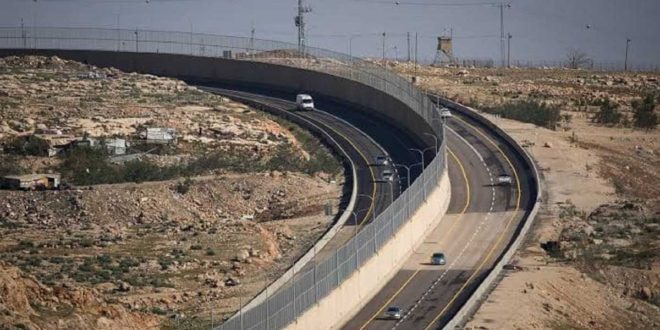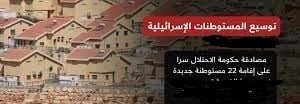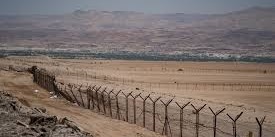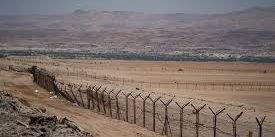By: Madeeha Al-A’raj
The National Bureau for defending land and resisting settlements ( nbprs ) stated in its latest weekly report , that within the context of the gradual implementation of the annexation projects as specified by the Liquidation Project that was adopted by the Trump’s Administration prompted by Netanyahu, the Occupation Authorities continue to raze and uproot trees in the Huwara town, south of Nablus to open the so called ‘Huwara bypass road’, which is about 7 km long at a cost of NIS 300,000,000. They have seized 406 donums of the lands of the villages and towns of Hawara, Burin, Awarta, Odala, and Beta, south of Nablus, with the aim of linking the isolated settlements around Nablus with other settlements and outposts to avoid passing through the Palestinian populated areas.
The road is one of a number of new bypass roads, such as Al-Arroub, Al-Laban Al-Gharbia, Nabi Elias, and Qalandiya bypass roads, and others. It is one of the most dangerous settlement projects as it strengthens settlement, altering settlements to the south of Nablus from isolated settlements to cities in the West Bank, and prevents creating a geographically continuous Palestinian State. In April 2019, the occupation government published a video clip showing the main design of paving the road, which was ratified years, and falls under the so-called ‘stairway plan’, which includes 44 plans, a number of which have been implemented. The construction of new settlement roads is proceeding at a higher rate than construction in settlements, especially as these roads seize more Palestinian lands.
The occupation government takes advantage of the hazy position of the new American administration, which sometimes reaches the level of collusion as the world is preoccupied with hot international files, though the occupation is continuing its settlement plans through the robbery of Palestinian land, where the Civil Administration announced on its official website the submission of a detailed plan that includes the confiscation of 1243 donums of Ramin and Beit Lid lands east of Tulkarm to build Settlement units in the Annab settlement. This plan aims to build 410 settlement units in the first phase out of 839 settlement units to expand the settlement. This confiscation of Palestinian lands in Tulkarm Governorate aims to convert the land from agricultural ones to areas for residential use and urban expansion.
At the time, the occupation authorities approved a decision to seize 147 donums of lands west of Bethlehem, which are located in basin 3 from the Zohr al-Matbasa area of the lands of the Nahalin town, and Natural basin 5 from the areas of ‘Khallat al-Saraweel,and Sha’b al-Bish. In the Hussan village. This coincided with the disclosure by the Organization and Construction Committee at the Civil Administration of the Occupation Army, and the spokeswoman for the Settlement Gathering Council, Gush Etzion, about progress in building a permanent settlement neighborhood in place of the 20 mobile caravans and replacing them with 96 settlement units. Chairman of the Gush Etzion Settlement Council, Shlomo Naeman said: “We will build our new homes in the neighborhood that will connect us to Jerusalem, and establish our religious school on our land.”
In order to strengthen and legitimize settlement activities, MK, Orit Struck of the Religious Zionist Party led by Smotrich submitted a bill to organize settlement outposts in the West Bank, which has so far been supported by 44 members of the Knesset, with the aim of organizing the settlement outposts and providing them with all necessary government support in terms of services. Noting that the bill was submitted to the previous 23rd Knesset by the Israel lobby led by Bezalel Smotrich and Haim Katz, and was approved in the first reading just before the dismantling of the Knesset.
The settlement will enable residents of these outposts to obtain services that include electricity, water, internet, and municipal services, and they will receive various government aid and provide them with real estate loans, which was not available nor possible for more than 25,000 settlers. Struck said that the bill has a very broad consensus, and therefore it will be put forward in a short time to quickly pass it regardless of who the new government is.
The so-called ‘Settlement Youth Forum’ concerning outposts and following up on their cases considered the bill to be the beginning of an important and historic step to provide basic living conditions for the residents of those outposts, saying, “It is time to stop engaging in political problems and crises, and bypass them in order to pass an important humanitarian law, especially since there is a majority in the Knesset that believes in it. Moreover, the so-called Yesha Settlement Council said that there is a clear right-wing majority that supports this humanitarian law, and the Knesset members must fulfill their commitment to support and solve the problem.
List of Israeli Assaults over the Last Week Documented by the National Bureau:
Jerusalem:
- Forcing a Palestinian to demolish his own house under construction within 5 days in the Jabal Al-Mukaber in the Bashir neighborhood / American Street, under the pretext of not having a building permit, otherwise he will be fined.
- Threatening to kill a 17-year-old Palestinian of the town of Shuafat in the occupied Jerusalem after he posted a video on the TikTok website documenting the attacking of an Israeli settler.
- Announcing a meeting by the alleged Temple groups next Sunday to revive the so-called ‘Jerusalem Day’ on the 10th of May, supported by political parties in the Knesset and the Jewish associations around the world.
Hebron:
- Notifying to stop work and construction in the Islamic cemetery east of Yatta, south of Hebron.
- Breaking into some shops in the old vegetable market (Al-Hisba) in the Old City of Hebron, which has been closed by military orders for years, stole the shops shelves as well.
- Attempting to expel shepherds from their lands in the Khirbet Zanuta in the town of Al-Dhahiriya, south of Hebron.
- Confiscating two caravans in the Wadi Al-Rakhim area in the Susya village, classified as C lands, as the Israeli forces prevent citizens from building there under the pretext of not having permits.
- Rejecting a Palestinian request to freeze the construction of an electrical elevator at the Al-IBrahimi Mosque in Hebron.
- Assaulting the shepherds in the Masafer Yatta, south of Hebron.
- Storming an agricultural land in the Baqa’ area, east of Hebron.
Bethlehem:
- Torching dozens of fruitful olive trees near the Beit Fajar town.
- Storming the ‘Tanner and Al-Saraj’ sites, and bulldozing areas of land, cutting down more than 50 olive and grape trees as well.
- Bulldozing lands in the Jabal Al-Ruwaisat with the aim of expanding the “Har Gilo” settlement.
- Removing the foundations of a room set up by the Israeli settlers in the Bareiat Taqou, east of Bethlehem.
Jordan valley:
- Imposing a 8,314 NIS fine on the citizen Ayman Rabah Bani Odeh to get his bulldozer back which was seized a few months ago in the Jordan Valley under the pretext of working in a prohibited area.
- Seizing a tractor in the village of Bardala, in the northern Jordan Valley.
- otherwise he will be fined
 المكتب الوطني للدفاع عن الارض ومقاومة الاستيطان منظمة التحرير الفلسطينية
المكتب الوطني للدفاع عن الارض ومقاومة الاستيطان منظمة التحرير الفلسطينية




